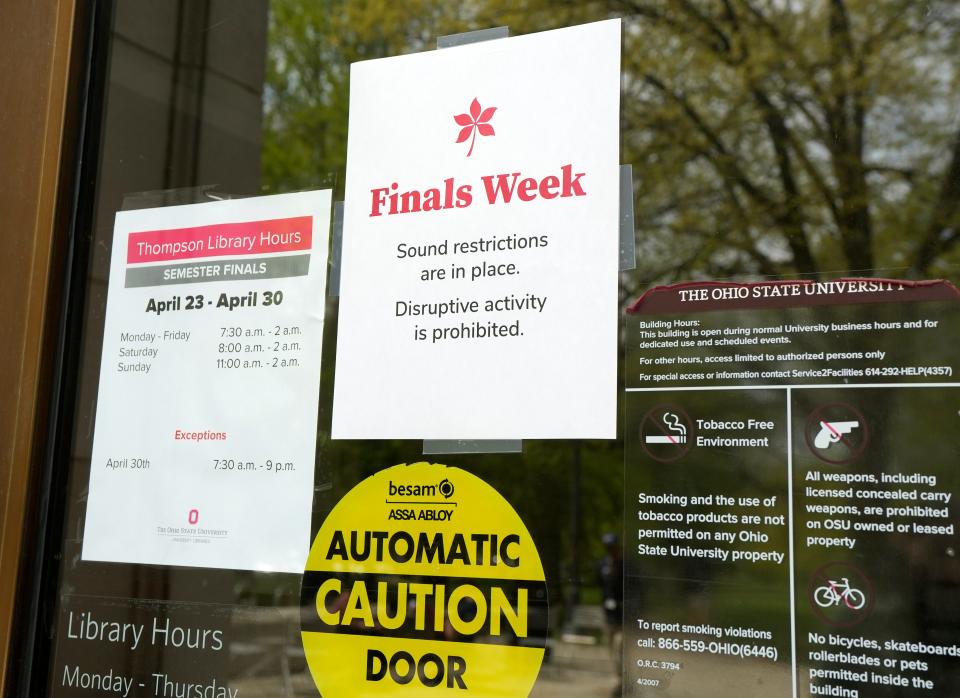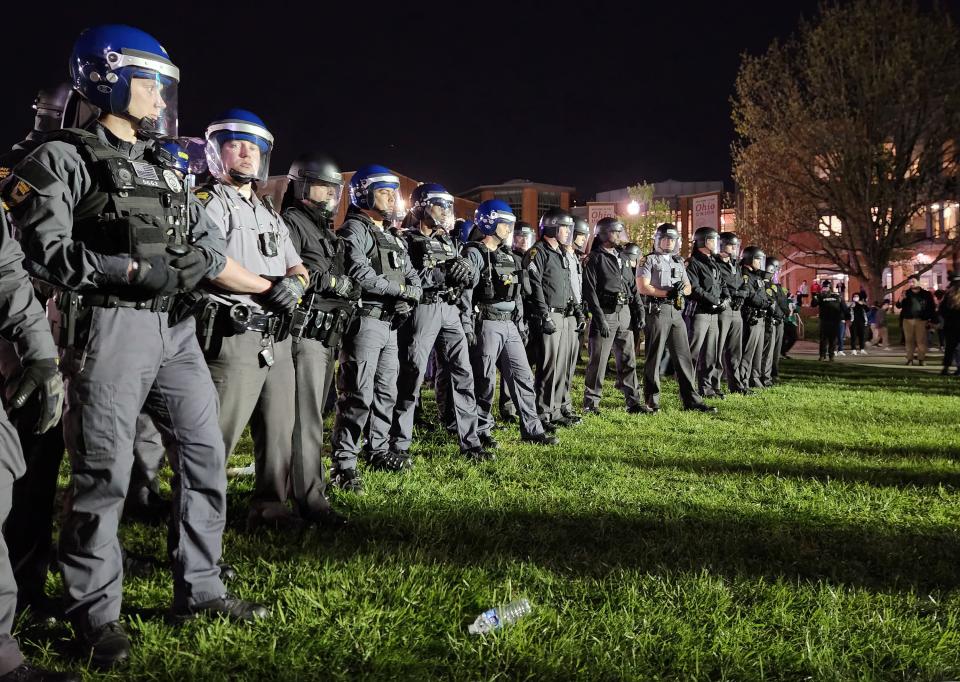Ohio State president: Campus 'will not be overtaken' by student protests
As student groups plan another anti-Israel demonstration for later this week, Ohio State University President Ted Carter said in a stern email Monday afternoon that the university "will not be overtaken" by protests as other campuses have across the country.
In his first communication to the campus community since last week's protests that led to more than 40 on-campus arrests, Carter said he wants "to set the record straight."
"What occurred on our campus on April 25 was not about limiting free speech," Carter said. "It was an intentional violation of university space rules that exist so that teaching, learning, research, service and patient care can occur on our campuses without interruption."
Last Tuesday, two Ohio State students were arrested during a peaceful on-campus protest. The next day, three more people were arrested on campus after students tried to set up an encampment on the South Oval. Then, on Thursday night, nearly 40 people were arrested after nearly six hours of chants, prayers and reconstruction of tents.

Ohio State students and employees last heard from Carter a week ago, the eve of exam week and a day before the first two students were arrested. In his previous email, Carter warned that when protected speech becomes threatening, "Ohio State has and will always move quickly to enforce the law and university policy."
College students from coast to coast have been calling for a ceasefire in Gaza and demanding their schools divest from Israel since last year's Oct. 7 attack by Hamas. But tensions heightened over the two weeks after more than a hundred students were arrested at Columbia University.
Tent encampments on college campuses have become a visible symbol of a student movement that has spread nationwide, from elite universities like Harvard University to public schools similar to OSU like the University of Texas at Austin.
"As a public university, demonstrations, protests and disagreement regularly occur on our campus — so much so that we have trained staff and public safety professionals on-site for student demonstrations for safety and to support everyone’s right to engage in these activities," Carter said. "Sadly, in recent days, I have watched significant safety issues be created by encampments on other campuses across our nation. These situations have caused in-person learning and commencement ceremonies to be canceled. Ohio State’s campus will not be overtaken in this manner."
Carter said protestors at Thursday's demonstration had received several warnings over multiple hours to vacate their tents and leave the area.
"The university’s long-standing space rules are content neutral and are enforced uniformly," he said. "Thursday’s actions were taken because those involved in creating the encampment on the South Oval were in violation of these rules and had been notified of this beginning at 4:30 a.m. when the first encampment was attempted, and continuing repeatedly throughout the day."

Carter said encampments are not allowed on campus "regardless of the reason for them" because they create a security concerns, put "undue pressure" on nearby campus buildings and are a "disturbance" to residence halls.
Arrests, Carter said, are not an action he or the university takes lightly, but "safety will not be compromised."
His email did not address specific criticisms against the university from a number of students, OSU employees, campus organizations and community members, questioning why the administration made the decision to call in the police rather than let students peacefully protest at a public university. It also did not address claims that some students experienced religious discrimination while detained.
"I acknowledge that even with additional facts about the incident and the timeline of events, some will continue to disagree with the actions taken," Carter said. "I accept that criticism and will always listen to others’ concerns. In short, I take my responsibilities very seriously and am accountable for outcomes."
Ohio State's Students for Justice in Palestine chapter and three other local organizations are planning another on-campus demonstration for Wednesday beginning at 6 p.m.
Sheridan Hendrix is a higher education reporter for The Columbus Dispatch. Sign up for Extra Credit, her education newsletter, here.
@sheridan120
This article originally appeared on The Columbus Dispatch: OSU president speaks out for first time since last week's protest arrests

